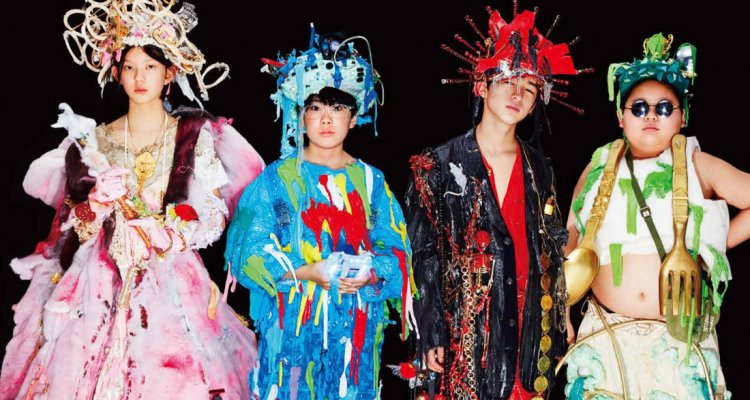From Japan, perennially a world leader in the art of sensory overload, comes “We Are Little Zombies,” a visually anarchic exploration of the difficulty of expressing emotion within a hyperreal media landscape. The feature film debut of noted music video and commercial director Makoto Nagahisa, “We Are Little Zombies” details four thirteen-year-olds who all lose their parents at the same time and meet at a funeral home. In no time, they bond over their shared scorn for the fuss the adults are making, their shared morbidity regarding the details of their parents’ deaths, and their shared unhappiness in life. Most of all, the Little Zombies bond and name themselves over their refusal to express any form of emotions; “Reality is too stupid to cry over, ” as their leader Hikari says. When the four start a band, this ethos forms the wellspring of their music, which catapults them to a brief, but intense fame.
READ MORE: Sundance 2019 Film Festival Preview: 25 Must-See Films
“We Are Little Zombies” is much more about style than story. Nagahisa delivers a visual tour-de-force, careening wildly through an unimaginable array of arresting shots. There is some light CGI used to psychedelic effect (a vaporwave nightmare of a talk show comes to mind), but mostly it’s just old fashioned inventive camera work, from dizzying crane zoom-outs, placing a camera at the bottom of a drinking glass, to shots replicating the third person overhead view of SNES-era video games, complete with a bouncing 8-bit soundtrack. It’s difficult to oversell the visual creativity and fun, which manifests itself both behind the camera and in front of it, as with the Michel Gondry-esque chaotic trash-based costumes and backdrops for the Little Zombies biggest song.
READ MORE: The 100 Most Anticipated Films Of 2019
Yet the style also is the story, probably more so than the muted emotional progression of the children. At its heart, the movie is about how our digital world has transformed emotions from something we express face to face with other humans to something we express through several layers of irony and detachment via the media we consume and create. Before their fame, the Zombies cannot express emotion in reality, or even in words, but only obliquely, through fantasies that use the conventions of movies and games. During their fame, record executives relentlessly water down the raw authenticity of the children, who cynically exploit the children’s tragedy while further removing them from any authentic emotional release.
READ MORE: The 25 Best Films Of 2019 We’ve Already Seen
More than any movie since ‘Scott Pilgrim,‘ ‘Little Zombies’ emulates not just the visual aesthetic of video games, but also their narrative logic, and the incongruity of the goal-oriented achievement that video games allow compared to the abstract nature of real-world problems. Their brush with musical stardom leaves the Little Zombies more disillusioned than ever by the phoniness of the adult world, but the adventure reminds them of their agency in life. “Despair isn’t cool,” the children remind themselves when needed, and they channel their video game heroes by never stopping, always going forward. [A-]
Check out all our coverage from the 2019 Sundance Film Festival here.

